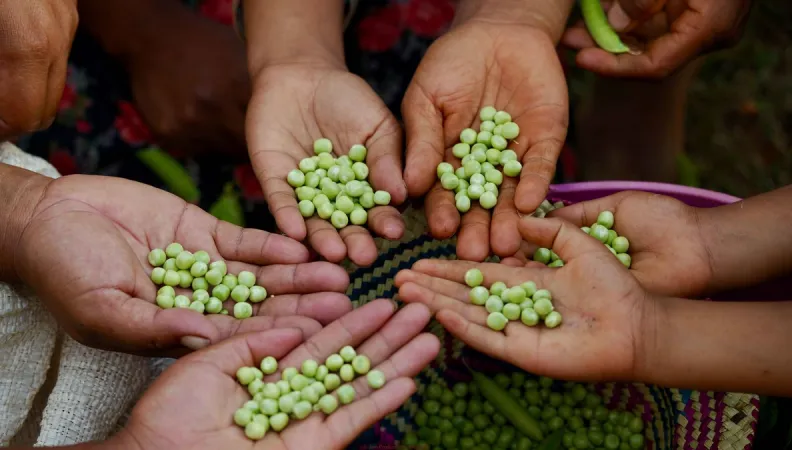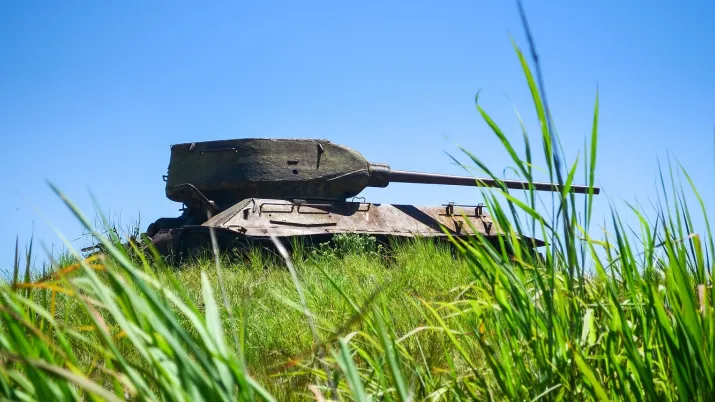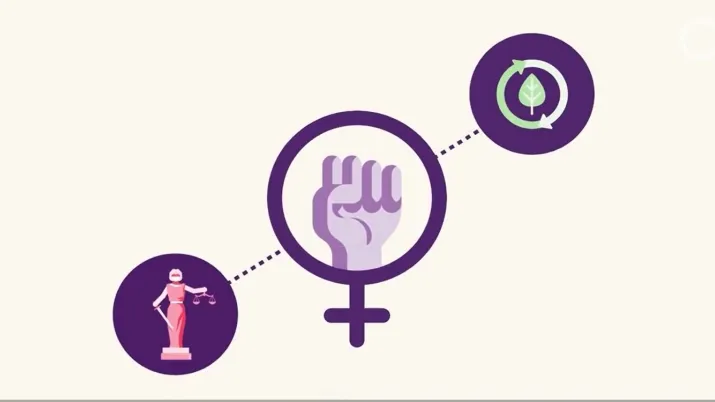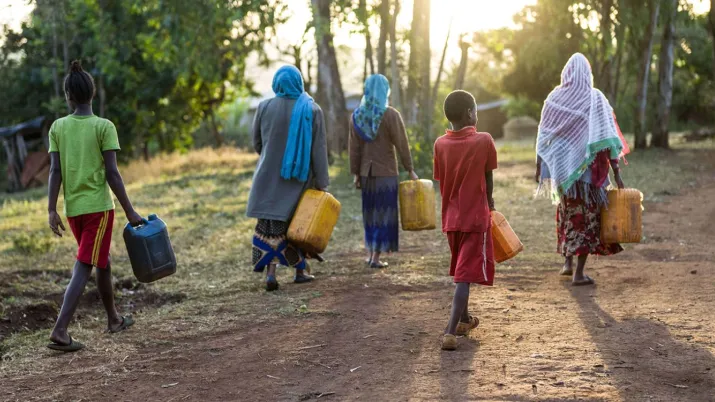Share the page
Women – a driving force for peacebuilding and security
Published on

To mark the 25th anniversary of the UN Resolution 1325 on "Women, Peace, and Security", AFD is giving a platform to four of its partners working to defend women's rights in conflict zones.
"It's becoming much harder to support women's participation and leadership," says Cristina Giron Fuelantala, in reference to conflict resolution efforts. The President of the Departmental Network of Chocó Women in Colombia adds: "Cooperation has been key in promoting gender mainstreaming in public institutions, but with budget cuts, everything is now more complex."
Nevertheless, on October 31, 2000, the United Nations Security Council adopted Resolution 1325 on Women, Peace and Security. For the first time, this resolution recognized the disproportionate impact of armed conflict on women and girls, and the importance of their full participation in peace processes.
Since that time, armed conflicts have broken out all over the world: including in Ukraine, the Middle East, the Sahel, Sudan, and Colombia. As geopolitical tensions mount, many countries are now prioritizing security and defense policies, rather than international solidarity and cooperation, as demonstrated by the dissolution of USAID in the United States. Violence continues to be perpetrated against women and girls across the world, including sexual abuse. Their voices remain largely unheard in the corridors of power, making it more vital than ever that the provisions of Resolution 1325 are put into action.
Leverage to make women's voices heard
"Feminist organizations used Resolution 1325 as leverage to strengthen their position, make their voices heard, and persuade the Iraqi government to adopt a national action plan," says Suzan Aref, Director of the Women Empowerment Organization, founded in Iraqi Kurdistan in 2004, a year after the United States' invasion of Iraq. Aref played a key role in the process and was instrumental in securing the adoption of the Iraqi National Action Plan, the first of its kind in the Middle East. She coordinated the cross-sector task force responsible for its implementation between 2014 and 2019, and represented the voices of Iraqi women before the United Nations Security Council.
In the Democratic Republic of Congo, Julienne Lusenge, Director of the Fund for Congolese Women (FFC), and winner of the 2023 UN Human Rights Prize, highlights the transformative impact of Resolution 1325 on women's participation in peace processes and their pursuit of justice. The FFC translated the resolution into Swahili, making it accessible to women in eastern DRC, and thus enabling often marginalized groups to take ownership of the national action plan: "This resolution gives us more weight to demand justice for survivors and play an active role in the reconstruction of our country."
In Colombia, the resolution played a central role in the peace process. As Cristina Giron Fuelantala says: "Resolution 1325 explicitly supports and increases opportunities for women to be managers and standard-bearers of peace, ensuring that our voices, interests, and needs are heard and incorporated into government initiatives. It's the only way to ensure inclusive and sustainable peace processes rooted in gender equality."
Despite considerable efforts in Colombia, patriarchal inequalities persist, creating barriers to women's engagement: "Women leaders receive threats of physical harm not only directed at themselves, but also at their families, including their sons and daughters. This is one of the main reasons why women distance themselves from leadership processes. We are also subjected to deeply-ingrained, patriarchal behaviors, such as sexual violence, which continues to be perpetrated by force in various regions,” says Cristina Giron Fuelantala.
See also
Strengthening solidarity between networks to break down barriers
At the regional level, strong networks of feminist associations have proven essential in overcoming the obstacles faced by women. In Central Africa, AFD supported an initiative led by three local organizations: the Fund for Congolese Women (DRC), the Association for the Fight against Violence against Women (Cameroon) and Women Act for Living Together (Central African Republic). This support helped build their capacities and create a regional mechanism to promote cooperation and networking. These alliances facilitate the sharing of strategies and good practices, as well as the pooling of resources, and give these organizations a united voice in peace negotiations.
This approach has drawn widespread consensus whether from the Middle East, Latin America, or Central Africa. Suzan Aref says that, in Iraq, "when women's organizations receive funding, they use it to strengthen the capacity of civil society networks, in order to disseminate knowledge, from large organizations to grassroots movements."
Greater international solidarity, as well as support from international partners, is therefore essential. As Julienne Lusenge says, "the support of partners like AFD is crucial: it helps us strengthen our organizations, support survivors, and promote women's economic empowerment. This flexible, ongoing support helps increase the visibility of our work, gives our voices more weight in decision-making bodies, and can lead to structural changes in terms of peace and reconstruction."
From work on the ground to the upper echelons of power
Continued support for the work carried out by women on the ground is thus vital, allowing them to take on a leadership role within their communities. "In the regions hit hardest by armed conflict, women have often taken the lead in reconstruction processes, both individually and collectively. They are the ones that create healing spaces for individuals and communities, an essential factor in ensuring lasting peace," says Cristina Giron Fuelantala.
The progress made on the ground must also be emulated in decision-making institutions. As Julienne Lusenge says: "We are mediators, resilience-builders, and the voices of our communities. But we only have a very limited presence in decision-making bodies on the national and international stage. I call on women and donors to show their solidarity and their long-term support for our initiatives."
Women must be able to participate fully in high-level decision-making to ensure sustainable peace. According to Susana Mejía, "Historically in Colombia, it is women who have supported peacebuilding processes during armed conflict, and led social and community reconstruction efforts." Effective participation, both in negotiations and in the implementation of peace agreements, is therefore essential. Suzan Aref says: "Stability in Iraq cannot be ensured without the active participation of women."
In taking stock of the last 25 years, progress has been mixed, with hard-won gains remaining fragile in the face of threats, various forms of violence, and political and financial barriers. The support of partners like AFD Group remains crucial to build the capacities of feminist associations, support the protection and participation of women, and thus invest in sustainable and inclusive peace for the future.



